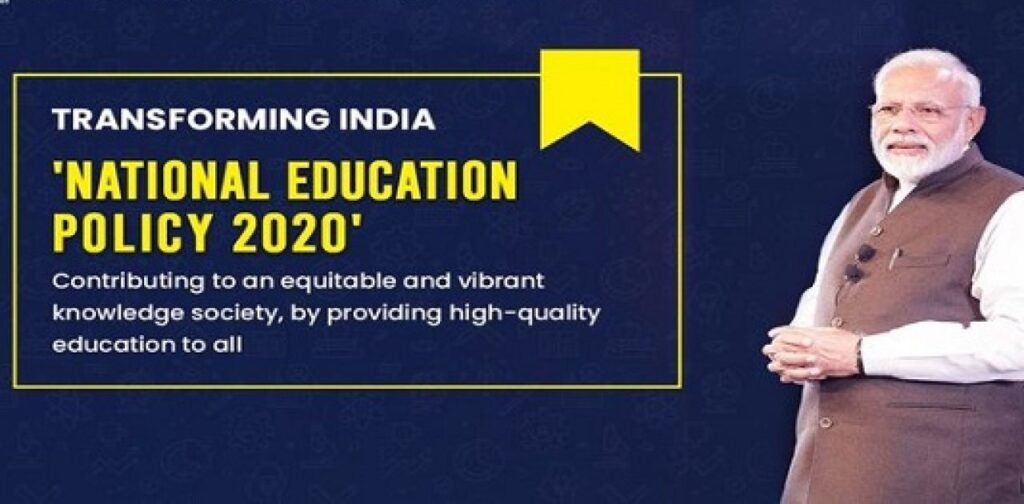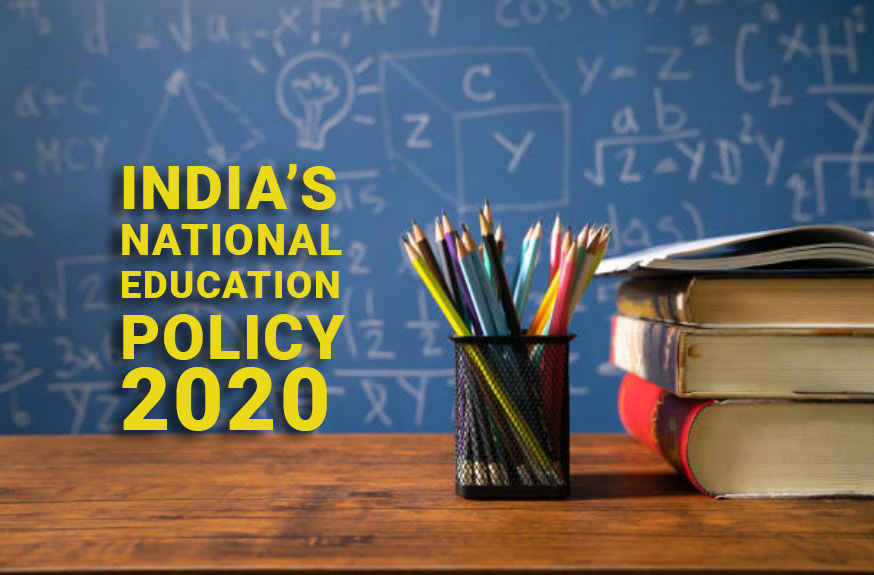NEP 2020 is not just a policy; it’s a revolution in the making. It empowers students to think critically, solve real-world problems, and is fundamentally reshaping the way India learns.
By Syed Mustafa Ahmad
This momentous occasion of July 29, 2023, marks a significant three-year milestone in the journey of India’s National Education Policy (NEP) 2020, filling our hearts with jubilation and optimism. This visionary initiative, spearheaded by the esteemed Prime Minister of India, was introduced with the audacious aim of revolutionizing the educational landscape of the nation. In bygone eras, education was often confined to mere vocational aspirations, but today, it encompasses the very essence of life. Much like life itself, education signifies the relentless struggle against adversity, ultimately emerging triumphant.
In our contemporary milieu, education serves as the bedrock for individual and societal progress. NEP 2020’s implementation has been underpinned by a multitude of driving factors, each contributing to its overarching success. Let us delve into some of these factors, providing a succinct overview in the following paragraphs.

First and foremost, in the age of rapid scientific and technological advancement, there exists an imperative to modernise the educational sphere. In an era dominated by Artificial Intelligence, Robotics, and Machine Learning, it becomes an onerous duty to align our educational paradigm with the ever-evolving modern trends. The days of primordial pedagogy have faded into obscurity, giving way to an epoch of innovation and growth.
The second pivotal factor is the imperative to evolve from an obsolete, rote-based education system to one that fosters critical thinking and problem-solving. In an increasingly complex world riddled with challenges such as poverty, cyber warfare, wealth inequality, and ethnic conflicts, our education must serve as a catalyst for sustainable solutions.
Thirdly, the recognition of individual differences among students is paramount. Every learner possesses a unique set of strengths and weaknesses, making it imperative to adopt a flexible, tailored approach to education. From subject selection to participation in extracurricular activities, a choice-based system must be in place to nurture the diverse talents of our students.
Lastly, India boasts a rich legacy of world-class educational institutions, and it is our solemn duty to uphold and enhance this heritage. We must continue to set the standard for imparting life-enriching education.
Every learner possesses a unique set of strengths and weaknesses, making it imperative to adopt a flexible, tailored approach to education. From subject selection to participation in extracurricular activities, a choice-based system must be in place to nurture the diverse talents of our students.
Nonetheless, there remains an arduous path ahead. While discernible progress is evident at the grassroots level, it will take time to fully integrate the educational system across the nation. Disparities persist at various levels and demand early rectification. Some states, for various reasons, are not yet prepared to implement this innovative policy. A significant portion of our youth remains beyond the reach of schools, ensnared in the relentless cycle of poverty and disease. Urgent measures are essential to reintegrate them into the educational fold.
Many students have been compelled to abandon their educational pursuits to support their families as labourers, their parents’ savings having evaporated during the tumultuous Covid-19 pandemic. Additionally, the cutthroat competition in pursuit of prestigious examinations has transformed education into a harrowing endeavour, leaving many students with uncertain prospects and eroding their well-being. Tragically, the pressure and consequences of these challenges have led to some students contemplating or even committing suicide. Others are stigmatized for their underperformance or denied entry to esteemed institutions.
Lastly, the spectre of caste bias continues to loom over higher education, tarnishing the fundamental ideals of equitable education. True education should epitomize unity in diversity; therefore, the perpetuation of caste biases within the educational framework is a grave concern that merits urgent rectification.

The advent of NEP 2020 is a momentous step forward, holding the promise of a reformed and revitalized educational system in the long term. It is our collective responsibility to ensure its fruition in the near future, with education becoming an indispensable cornerstone of our society. Nations that invest in education flourish, harnessing the power of their human resources to drive prosperity and progress. Let us all unite in this endeavour, embracing the transformative potential of education for the betterment of our great nation.
Leave a Reply